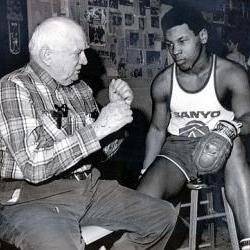Athlete empowerment- gone too far?
1 Comment One of the buzz catchphrases for the last year has been “athlete empowerment” when dealing with young athletes. The young athletes (a loose term, most of them are recreational games players)are supposed to be able to choose what type of training programme they follow, and even give feedback on it.
One of the buzz catchphrases for the last year has been “athlete empowerment” when dealing with young athletes. The young athletes (a loose term, most of them are recreational games players)are supposed to be able to choose what type of training programme they follow, and even give feedback on it.
Has this gone too far?
Is this an excuse for athletes to dictate how and where they train,
I liken this to the difference between the original Star Trek series where the crew went out and explored and got on with things and The Next Generation where Deanna Troi wanted to cuddle everything in sight. Guess what, the original series stands up quite well (except for the effects) but TNG looks dated.
At some point you have to stop the cuddling and get on and toughen up a bit; unless your sport requires cuddling at International Level.
For me, it doesn’t make sense for 16-17 year old school children with 3-4 years of recreational playing experience to dictate whole training strategies to coaches. If I “empowered” my daughter when we went to the supermarket she would stock up on olives and ice cream. O.k for one meal, but disastrous as a long term diet.
The whole point of having coaches who are experienced and educated, is that it helps shape the training programme for the athlete. I empower the athletes as far as gaining feedback and asking questions of them. but I shape the programmes, in conjunction with their sports coaches.
I think a lot of it comes down to some youngsters wanting to get a tracksuit, feel part of a squad or team, but not actually having to confront the reality of hard work and dedication that is necessary to succeed at International sport. By molly coddling them and allowing them to dictate in the short term, we are actually harming their long term prospects


 Who would you rather have preparing you for a World Championship Boxing match: Cus D’Amato or Mike Tyson?
Who would you rather have preparing you for a World Championship Boxing match: Cus D’Amato or Mike Tyson?